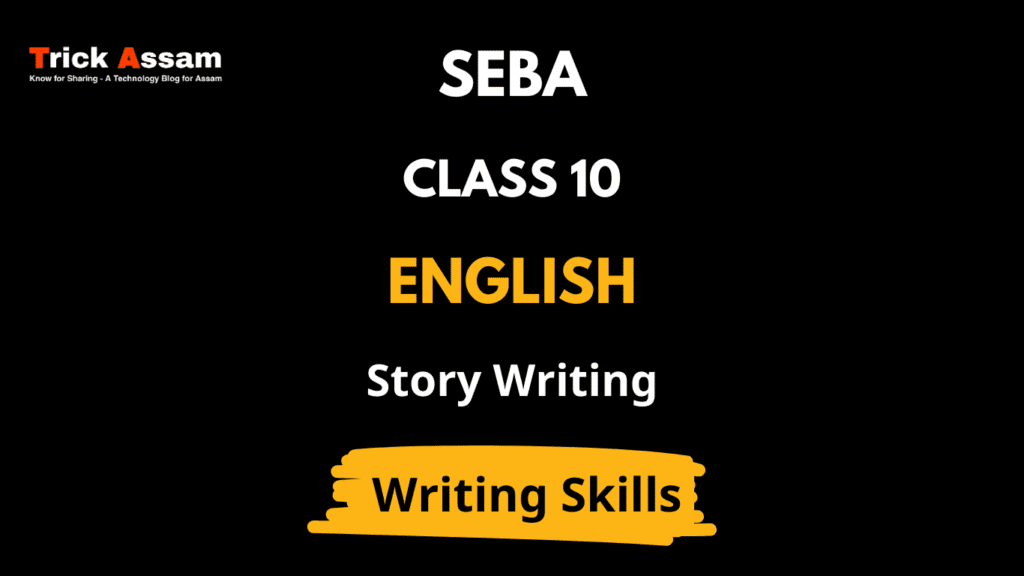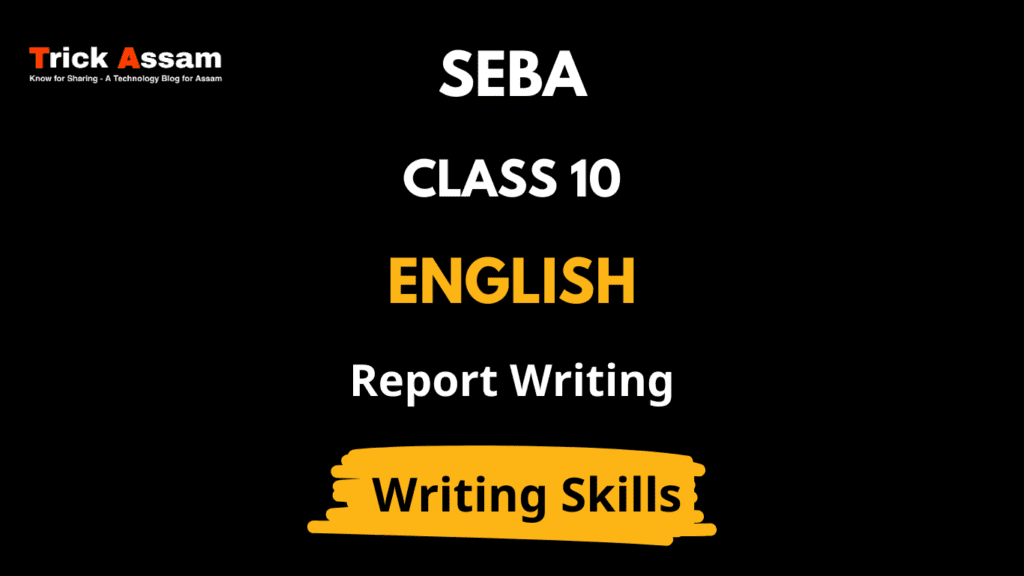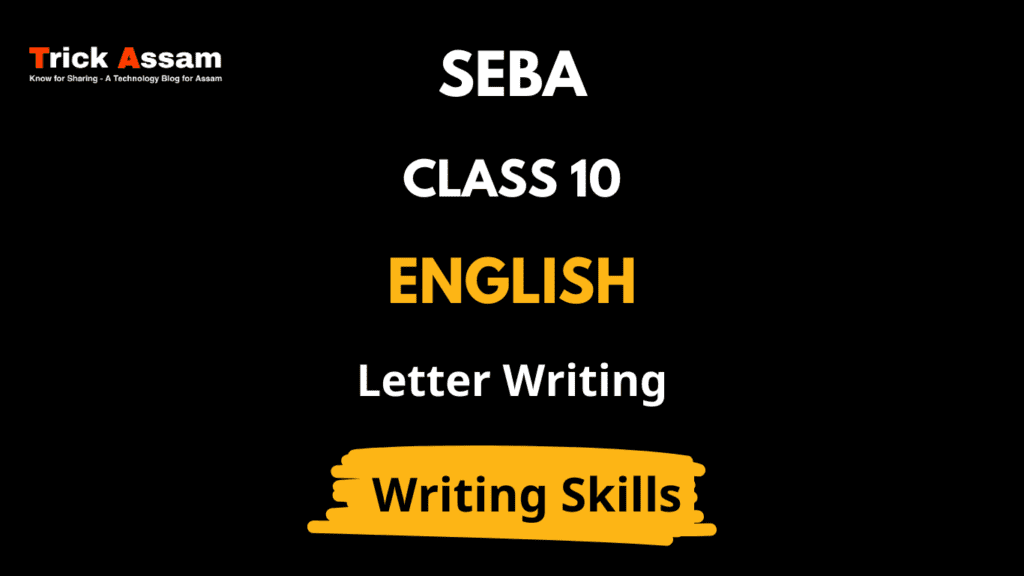Reading Passages | Class 10 English Writing Skills | Class 10 Reading Passages Question Bank | Reading Passages English Writing Skills Question Bank | Reading Passages Question Answer Assam | SEBA Class 10 Reading Passages Question Bank
Reading Passages
1. Read the following passage carefully and answer the questions that follow: [HSLC 2015]
The great advantage of early rising is that one can start one’s work long before others. The early riser has done a large amount of hard work before other men have got out of bed. Early in the morning the mind is fresh and no sounds or noises disturb our attention. The work done at that time is generally well done. Also one finds time to take some exercise in the fresh morning air. Exercise supplies him with a good deal of energy that enables him to work hard until the evening. By beginning so early, he knows that he has plenty of time to do his work thoroughly. He does not have to hurry over any part of his work. He gets to sleep long before midnight. At that time sleep is most refreshing. After a night’s sound rest, he rises early next morning in good health ready for the labour of a new day.
(i) What advantages does an early rise have over others? 1
Ans: The early risers can start their works long before others. Also, the early riser can complete a large amount of hard work before the other men have gone out of bed.
(ii) Why should one take exercise in the morning and begin one’s work so early? 2
Ans: One can find time to take some exercise in the fresh morning air. Morning Exercise supplies a good deal of energy that enables to work hard until the evening. By beginning so early, it has plenty of time to do work thoroughly. One does not have to hurry over any part of work.
(iii) What are the uses of going to sleep long before midnight? 2
Ans: The uses of going to sleep long before midnight are that one can get to sleep long before midnight. At that time sleep is most refreshing. After a night’s sound rest, one can rise early next morning in good health ready for the labour of a new day.
2. Read the following passage carefully and answer the questions that follow: [HSLC 2016/2018]
Paper is one of the most important articles that we use in our day to day life. If there had been no paper our civilization would not have progressed so fast. Great scientists write their thoughts on paper first and then carry out their experiments. Great engineer draw their plans on paper first and then built houses, bridges, dams and so on. Great thoughts are written or printed on paper for everyone to read. If there were no paper we would not have all the good books that are available in the world. Without paper it would be difficult for the people of one country to know about the people of another country.
(i) Mention three uses of paper. 1
Ans: Three uses of paper are—
(a)Great scientists write their thoughts on paper first and then carry out their experiments.
(b) Great engineer draw their plans on paper first and then built houses, bridges, dams and so on.
(c) Great thoughts are written or printed on paper for everyone to read.
(ii) Why is paper a most essential thing for mankind? 2
Ans: Paper is a most essential thing for mankind. Because/As, if there had been no paper then our civilization would not have progressed so fast. Great scientists write their thoughts on paper first and then carry out their experiments. Great engineer draw their plans on paper first and then built houses, bridges, dams and so on. Great thoughts are written or printed on paper for everyone to read.
(iii) What would have happened if there were no paper? 2
Ans: If there were no paper we would not have all the good books that are available in the world. Without paper it would be difficult for the people of one country to know about the people of another country.
3. Read the following passage carefully and answer the questions that follow: [HSLC 2017]
Trees help to support man’s life by supplying the atmosphere with oxygen which is essential to life. The oxygen in the air is constantly being used up and turned into carbon-di-oxide which is the good that plants ‘eat’. The leaves of trees (in fact, of all green plants) absorb this carbon-di-oxide and with the help of sunlight break it down into carbon and oxygen. The carbon is used to make starch and the oxygen is released into the air, so replacing the oxygen used up by animals. But for this animals would soon die for lack of oxygen.
Starch and other carbon compounds made in the green leaves of trees (and of other green plants too) serve as food for animals. The tiny green cells of plants are wonderful laboratories which produce all the starch in the world. But for this service done by plants, all animals would sooner or later die for lack of food.
(i) What is the food that the plants ‘eat’? 1
Ans: The oxygen in the air is constantly being used up and turned into carbon-di-oxide which is the good that plants ‘eat’.
(ii) How do the green cells of plants serve the animals? 2
Ans: Starch and other carbon compounds made in the green leaves of trees (and of other green plants too) which serve as food for animals. Also, the tiny green cells of plants are wonderful laboratories which produce all the starch in the world.
(iii) How do the leaves of trees break down carbon-di-oxide into carbon and oxygen? 2
Ans: The leaves of trees (in fact, of all green plants) absorb this carbon-di-oxide and with the help of sunlight break it down into carbon and oxygen. The carbon is used to make starch and the oxygen is released into the air, so replacing the oxygen used up by animals.
4. Read the following passage carefully and answer the questions that follow: [HSLC 2019]
A good book always teaches us something, in fact many things directly or indirectly if the mind is willing to learn. Books are the best companion; they also give us the best society. They help us in establishing contact with many great men. We hear what such men said and did; through books we even see them as if they were really alive. As we read, we hear great thoughts with great minds; we hope and grieve with great men. The scenes in which they appeared are described for us and as we turn the pages we come to know what nobleness is. Books work as agents and help us in being better than we are. Books should, therefore, be treated as friends and guides.
(i) How can books teach us? 1
Ans: A good book always teaches us something, in fact many things directly or indirectly if our minds are willing to learn.
(ii) How can one share the great thoughts through books? 2
Ans: The books help us in establishing contact with many great men. We hear what the great men said and did; through books we also see them as if they were really alive. As we read, we hear great thoughts with great minds; we hope and grieve with great men. The scenes in which they appeared are described for us and as we turn the pages we come to know what nobleness is.
(iii) Why should books be treated as friends and guides? 2
Ans: Books work as agents and help us in being better than we are. A good book always teaches us something, in fact many things directly or indirectly if the mind is willing to learn. Books are the best companion; they also give us the best society. Books should, therefore, be treated as friends and guides.
5. Read the following passage carefully and answer the questions that follow: [HSLC 2020]
Three-fourth of the Earth is covered by the sea which both separates and unites the various races of mankind. The sea is the great highway along which man may travel at his will, the great road that has now walls or hedges hemming it in. Nobody needs to keep it in good repair with the help of pickaxe and barrels of tar and steamrollers. The sea appeals to man’s love of the perilous and the unknown, to his love of conquest, his love of knowledge and his love of gold. Its blue waters call to him and bid him fare forth in quest of fresh fields. Beyond their horizon he has found danger and death, glory and gain.
(i) How much of our planet is not covered by the sea? 1
Ans: One-fourth of our planet is not covered by the sea.
(ii) How does the sea help man? 2
Ans: The Sea is the great highway along which man may travel at his will, the great road that has now walls or hedges hemming it in. Nobody needs to keep it in good repair with the help of pickaxe and barrels of tar and steamrollers.
(iii) In what way does the sea appeal to man? 2
Ans: The Sea appeals to man’s love of the perilous and the unknown, to his love of conquest, his love of knowledge and his love of gold. Its blue waters call to him and bid him fare forth in quest of fresh fields.
6. Read the following passage carefully and answer the questions that follow:
Education is the process of acquiring knowledge and skills through learning. It is an essential part of human development and plays a crucial role in shaping our lives. Education helps us to understand the world around us, to develop our critical thinking skills, and to become productive members of society.
There are many different types of education, including formal education, informal education, and non-formal education. Formal education is provided by schools, colleges, and universities. Informal education is learning that takes place outside of formal institutions, such as through family, friends, and community. Non-formal education is learning that is organized but not part of the formal education system, such as adult education programs and vocational training.
Education is important for everyone, regardless of their age, gender, or background. It can help us to achieve our personal and professional goals, to improve our lives, and to contribute to the betterment of society.
(i) What is education?
Ans: Education is the process of acquiring knowledge and skills through learning.
(ii) What are the different types of education?
Ans: The different types of education are formal education, informal education, and non-formal education.
(iii) Why is education important?
Ans: Education is important because it helps us to understand the world around us, to develop our critical thinking skills, and to become productive members of society. It can also help us to achieve our personal and professional goals, to improve our lives, and to contribute to the betterment of society.
7. Read the following passage carefully and answer the questions that follow:
Science and technology are essential for human progress. Science helps us to understand the world around us, while technology helps us to apply our knowledge to solve problems and improve our lives.
Science and technology have had a profound impact on all aspects of our lives, from the way we travel and communicate to the way we produce food and treat diseases. Science and technology have also helped to create new industries and jobs, and have contributed to economic growth.
In the 21st century, science and technology are more important than ever before. We face a number of global challenges, such as climate change, food security, and energy shortages. Science and technology are essential to finding solutions to these challenges.
(i) What are the benefits of science and technology?
Ans: The benefits of science and technology include:
• Improved health and well-being
• Increased productivity and economic growth
• A better understanding of the world around us
• The development of new products and services
• The creation of new jobs and industries
(ii) What are some examples of how science and technology have improved our lives?
Ans: Some examples of how science and technology have improved our lives include:
• The development of vaccines and antibiotics
• The development of new agricultural technologies that have increased food production
• The development of new communication and transportation technologies that have made it easier for us to stay connected and travel around the world
• The development of new energy technologies that are helping us to reduce our reliance on fossil fuels
(iii) What are some of the global challenges that we can address through science and technology?
Ans: Some of the global challenges that we can address through science and technology include:
• Climate change
• Food security
• Energy shortages
• Global health pandemics
• Access to quality education and healthcare


